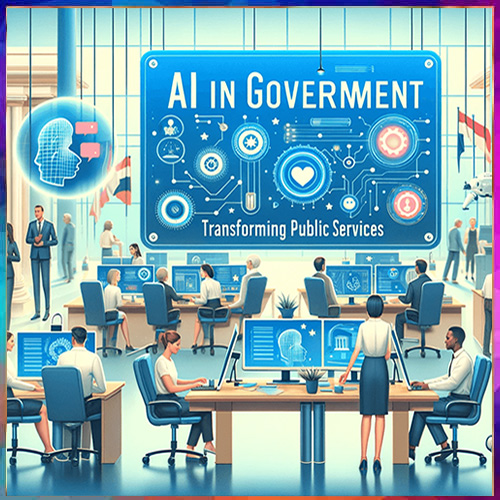By Mr. Roshan Kumar Sahu, Co-Founder, FaceOff Technologies
As the global landscape evolves, governments around the world are rapidly integrating artificial intelligence into their operations. However, the journey toward adopting AI is notably more intricate for public institutions compared to their private-sector counterparts. Unlike businesses, government agencies are bound by strict regulatory frameworks, tasked with safeguarding sensitive citizen information, and are held to high standards of transparency and accountability. Thus, the challenge lies not just in the implementation of AI technologies, but in deploying them in a manner that is secure, compliant, ethical, and trustworthy to the public.
The nature of government data varies significantly, encompassing everything from national security intelligence to citizen records. This sensitivity necessitates that AI systems prioritize robust security controls, protect privacy, and adhere rigorously to legal mandates. The ethical considerations surrounding AI use are paramount, ensuring that the technology remains transparent, explainable, and devoid of bias—principles that are crucial for democratic governance.
Essential AI Technologies for Government Use
For governments to effectively navigate the complexities of AI integration, they require advanced solutions that emphasize data governance, auditability, and policy enforcement. These technologies not only facilitate rapid insights and enhance decision-making but also streamline operations and improve citizen services. Furthermore, they play a critical role in fortifying national resilience and modernizing outdated legacy systems that often date back several decades.
With the right AI tools, public institutions can innovate confidently, ensuring they keep pace with global advancements while remaining effective and trusted by the populace. The integration of secure and ethically aligned AI represents not merely a technological upgrade but a strategic imperative for government agencies. This careful approach allows governments to harness the potential of AI, enabling them to evolve in line with the rapid technological advancements occurring worldwide.
As AI continues to transform the landscape of public service, it is crucial for governments to maintain a balance between innovation and ethical responsibility. The challenges of implementing AI in public institutions underscore the necessity for frameworks that not only promote efficiency but also uphold the values of transparency and accountability essential for democratic societies.
In conclusion, the future of AI in government hinges on the development and deployment of technologies that prioritize security, ethics, and compliance. As public institutions work to integrate these advanced solutions, they must remain committed to fostering trust with their citizens—ensuring that AI’s potential is realized in a manner that reinforces, rather than undermines, democratic governance.
See also Amazon Invests $50B in Data Centers to Enhance AI Capabilities for US Government
Amazon Invests $50B in Data Centers to Enhance AI Capabilities for US Government Albanese Government Launches Australian AI Safety Institute to Mitigate Risks by 2026
Albanese Government Launches Australian AI Safety Institute to Mitigate Risks by 2026 Trump Launches AI ‘Genesis Mission’ to Enhance Federal Scientific Research
Trump Launches AI ‘Genesis Mission’ to Enhance Federal Scientific Research Local Governments Adopt AI Solutions to Cut Housing Permit Review Times by Days
Local Governments Adopt AI Solutions to Cut Housing Permit Review Times by Days Government CIOs Anticipate 52% Budget Increase for AI Investments by 2026
Government CIOs Anticipate 52% Budget Increase for AI Investments by 2026





















































